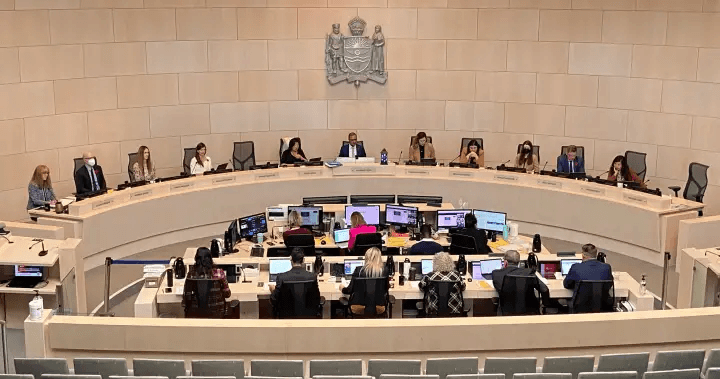The chambers of Edmonton City Hall are charged with a tense and defining question.
Is Edmonton a city that must tighten its belt, or is it a city that must invest in its people, even when finances are strained?
This is the fundamental conflict creating deep Edmonton Council divisions, a philosophical rift that pits fiscal hawks against social progressives in a dramatic struggle over the city's multi-billion-dollar budget.
The recent approval of a 5.7% municipal property tax increase for 2025 is the latest flashpoint in this ongoing debate.
For the average homeowner, this translates to paying roughly $763 in municipal taxes for every $100,000 of their home's assessed value, a tangible consequence of the decisions being made downtown.
It's a decision that has satisfied no one completely and highlighted the two competing visions for Edmonton's future.
The Call for Cuts and Fiscal Restraint
On one side of the divide are councillors and community leaders who argue the city is on an unsustainable financial path.
The Edmonton Chamber of Commerce has been a vocal proponent of this view, expressing deep concern over rising taxes that they say threaten business competitiveness and strain family budgets.
Business leaders have urged council to prioritize core services—think potholes and snow clearing—and to reconsider spending on anything deemed non-essential.
Councillor Tim Cartmell has emerged as a prominent critic of the city's current fiscal direction, arguing the budgeting process itself is fundamentally broken.
He has consistently voted against tax increases, calling for a halt to major new projects and a more rigorous, line-by-line review of city spending.
This camp believes that without significant cuts, the city risks pushing businesses and residents to more affordable neighbouring communities.
Their argument is one of pragmatism: the city cannot be all things to all people, and hard choices are needed now to prevent a deeper crisis later.
The Push for People and Social Investment
On the other side are those who see investing in social infrastructure not as a luxury, but as a core responsibility.
Mayor Amarjeet Sohi has championed this perspective, balancing the need to minimize tax hikes with critical investments in the city's social fabric.
Proponents of this view point to growing demands on city services, fueled by population growth and complex social challenges.
They argue that cuts to social programs are a false economy, leading to higher costs down the road in policing, emergency services, and healthcare.
Key among these investments is the push for affordable housing Edmonton.
Through initiatives like the Affordable Housing Investment Program, the city is actively funding the creation of new units to address a growing crisis of housing insecurity.
Another major focus is public safety, but with an approach that goes beyond mere enforcement.
The city's Community Safety and Well-being (CSWB) Strategy directs funding to community groups tackling the root causes of crime, such as poverty and racism.
This represents a philosophical commitment to proactive, community-based solutions.


